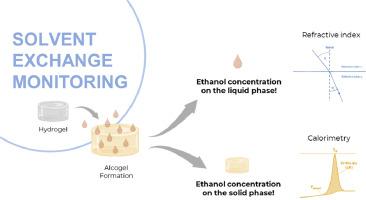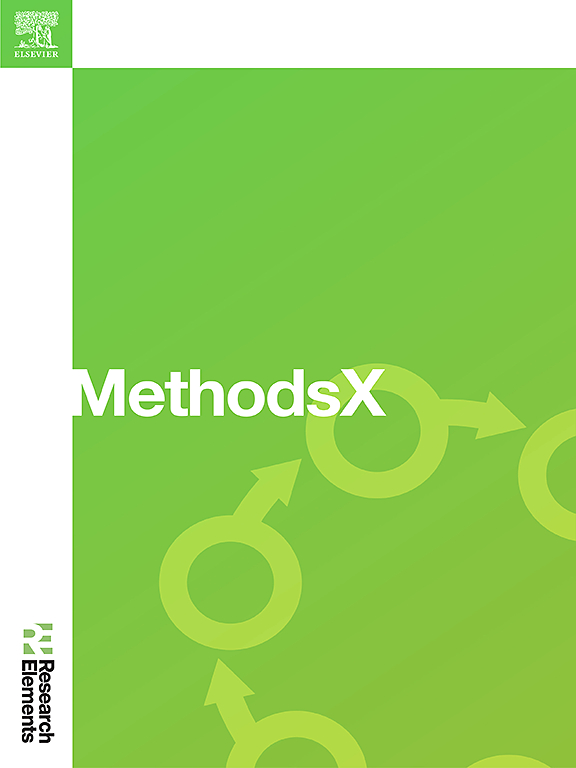Measurement of ethanol concentration for monitoring the solvent exchange during the alcogel preparation
IF 1.6
Q2 MULTIDISCIPLINARY SCIENCES
引用次数: 0
Abstract
A crucial and time-consuming stage in aerogel production is the solvent exchange process for alcogel formation. This process involves multiple steps, exposing the hydrogel to ethanol solutions with increasing concentration until the equilibrium in each step. Currently, the determination of contact time between phases (hydrogel and liquid solution) is either arbitrary or based on prior studies. However, considering the unique physicochemical characteristics of each system, as well as the solid-liquid interactions and the liquid diffusion within the matrix, the required time may vary. Monitoring this step can lead to a reduction in the time needed for alcogel production and the optimization of the entire process. The refractive index serves as a tool to assess ethanol concentration in the liquid solution over time, providing immediate information about the status of the solvent exchange. Alongside, differential scanning calorimetry can be employed to evaluate ethanol content in the alcogel (solid phase), confirming the attainment of equilibrium between phases.
- •This research introduces a technique for monitoring solvent exchange.
- •Refractive index measurement of the liquid solvent offers immediate concentration information into the status of the solvent exchange.
- •Differential scanning calorimetry is applicable for measuring the ethanol content within the alcogel and validating refractive index findings.

测量乙醇浓度以监测炼金凝胶制备过程中的溶剂交换
气凝胶生产的一个关键且耗时的阶段是形成炼金凝胶的溶剂交换过程。这一过程包括多个步骤,将水凝胶暴露于浓度不断增加的乙醇溶液中,直到每个步骤达到平衡。目前,确定相(水凝胶和液体溶液)之间的接触时间要么是任意的,要么是基于先前的研究。然而,考虑到每个系统独特的物理化学特性,以及固液相互作用和液体在基质中的扩散,所需的时间可能会有所不同。对这一步骤进行监控可以缩短生产炼金凝胶所需的时间,并优化整个工艺流程。折射率可作为评估液体溶液中乙醇浓度随时间变化的工具,提供有关溶剂交换状态的即时信息。同时,差示扫描量热法可用于评估炼金凝胶(固相)中的乙醇含量,确认各相之间是否达到平衡。
本文章由计算机程序翻译,如有差异,请以英文原文为准。
求助全文
约1分钟内获得全文
求助全文
来源期刊

MethodsX
Health Professions-Medical Laboratory Technology
CiteScore
3.60
自引率
5.30%
发文量
314
审稿时长
7 weeks
期刊介绍:
 求助内容:
求助内容: 应助结果提醒方式:
应助结果提醒方式:


